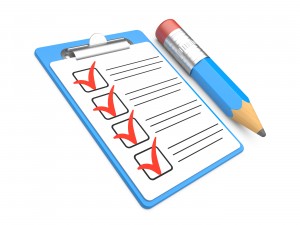Blog Post 2 – Project Development
 Weekly Objectives and Achievements
Weekly Objectives and Achievements
Group projects can be difficult sometimes especially when everyone is very busy. In this situation organization is the key to avoiding disaster. Therefore in order to ensure success our group has developed a schedule indicating each of the tasks to be completed every week.
Week 1:
Our main objective this week was to decide on a community project. This was achieved by discussing what interests us and looking through all the community projects together. We also created a Facebook page as our main source of communication between group members. We later each picked out the top three projects that we want to work on, and shared our choices on the Facebook page.
Week 2:
Our objective was to design a systems diagram for our assigned community project. We used our time wisely during the tutorial and working efficiently as a group were able to complete the diagram. Our second objective this week was to start on Blog Post #1. We accomplished this by deciding as a group which blog post each member is going to be in charge of. To ensure that all of us contributed to the blog post, we also created a google doc and set a due date for each members contributions.
Week 3:
Our objectives were to complete Blog Post #1. We successfully accomplished this by having each of the group members contribute to the blog post and made sure that the person charge of this post put the content together and posted it on the blog. The other objective was to meet our community partner, Sarah Carten. This was accomplished by her coming to UBC to explain the details of our community project.
Week 4:
Contacting the community kitchens was one objective this week. This was accomplished by first deciding which community kitchen each of us was going to contact by phone. We also set a date to contact them by, so we could be on track and finish it on time. We kept each other updated by posting on the Facebook page after contacting the community kitchens. The other objective was to start on the proposal presentation and report. We worked on these together during the tutorial and made sure that we followed the instructions for the report which was provided to us on the LFS 350 website. We also created a google doc, so we could put our ideas for the proposal on it. Near the end of the tutorial, we separated the work, set up a due date for the parts, and decideded when we should meet to put everything together for the presentation and the report.
Week 5:
Our first objective for this week was to complete a successful proposal presentation. We achieved this by meet up an hour before class started to practice and time ourselves as well as to make sure that our presentation slides had all the information required. The second objective was to revise and finish our proposal report that we started last week. As a group we met up before the day it was due and revised the report by using the feedback that we got from our TA as well as the notes that we took during the presentations. The last objective was to confirm the meeting dates and times with the community kitchens which was done by email. We also looked up and contacted additional community kitchens within our neighbourhoods in our attempt to have at least five community kitchens to visit.
Week 6:
Our objectives for this week were to visit the community kitchens and complete Blog Post #2. To ensure that our visits were successful, the day before, we contacted each other through Facebook to decide when to arrive, who was in charge of the consent form, and who would be conducting the survey and observations. We also made sure that we all had our TCPS certificate done and were all prepared for the visit. We made sure that each of us contributed to the blog post and completed our contributions by Friday. One group member put the blog together and posted it.
Our achievements each week aligned with our objectives. Our weekly achievements allowed us to be more organized and helped us to get work done in a timely fashion instead of rushing at the end.
Having to listen to other groups’ presentations on the same community project was helpful as it allowed us gain different perspectives on the community project.
Before meeting with our community partner, Sarah, our group was not really interested in this project. However, after meeting with Sarah, we had a better understanding of what a community kitchen is and an what the purpose of this project was. This increased our interest in the project and gave us charity about what was expected of us for this project. Similarly, listening to other groups’ presentations gave us insights that we had not thought of before. This showed us how sharing ideas and listening to others is an important step that we need to take in order to start seeing change. In other words, if we want to see change or create change, it is important to share knowledge with each other (Sartin, 2014). In the end, this could make a big impact. In addition, to make improvements, we have to “listen to [the] words, but more importantly listen to silences” (Msimang, 2014). For instance, our group made notes during the presentations, but instead of just writing down notes we actually used those notes to help us improve our report.
Ultimately, listening to other groups’ presentations made us realized what information we still need to add to our report and as a result we achieved a better mark on our proposal report. However, to improve even more in the future, we need to also ask questions if we want more clarification on specific things.
 Upcoming Objectives and Strategies
Upcoming Objectives and Strategies
The upcoming objectives are to visit the community kitchens, organize data collected from the survey, and complete Blog Post #3. To achieve these objectives, we need to complete site visits at community kitchens. Each of us will also need to organize the survey data into a table for easier comparison. We will also contribute content for the third blog post. In addition, we will maintain effective communication with our group members through Facebook to keep everyone updated. We will assign weekly tasks to each of the group members and ensure tasks are completed in timely manner. We will also schedule a time to meet up as a group to start on analyzing our data and get a head start on our final project report.
References:
Msimang, S. (2014, Dec 10). A Pragmatic Idealist [Audio podcast]. Retrieved from http://themoth.org/posts/stories/a-pragmatic-idealist
Sartin, J. (2014, Dec 10). The Fish Bank [Audio podcast]. Retrieved from http://themoth.org/posts/stories/the-fish-bank
